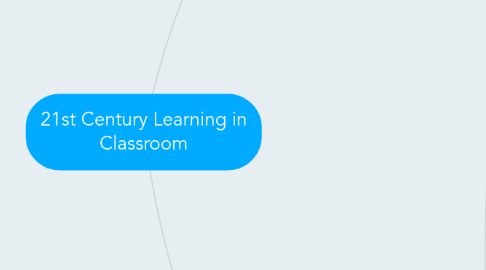
1. 21st Century Students Outcomes
1.1. Content Knowledge and 21st Century Themes Learning
1.1.1. Learn and master various fields and core subjects such as: Mathematics, Science, English, Geography, History, ICT, Economy, Global Awareness, Health Literacy, Environmental Literacy, Civic Literacy
1.2. Learning and Innovation Skills
1.2.1. Creative and Inovative
1.2.2. Critical Thinking and Problem Solving
1.2.3. Communication and Coolaboration
1.3. Information, Media and Technology Skills
1.3.1. Access to an abundanceof information
1.3.2. Rapid changes in technology tools
1.3.3. Ability to collaborateand make individual contributions on an unprecedented scale
1.4. Life and Career Skills
1.4.1. Flexibility & Adaptability
1.4.2. Initiative & Self Direction
1.4.3. Social & Cross-Cultural Skills
1.4.4. Productivity & Accountability
1.4.5. Leadership & Responsibility
2. 21st Century Support Systems
2.1. 21st Century Standards
2.1.1. Focus on 21st century skills, content knowledge and expertise
2.1.2. Engage students with the real world data, tools, and experts in real life
2.1.3. Allow for multiple measures of mastery
2.2. Assessment of 21st Century Skill
2.2.1. Balance of assessmentsincluding high-quality standardized testing
2.2.2. formative and summative assessments that measure student mastery of 21st century skills
2.3. 21st Century Curriculum and Instruction
2.3.1. Higher order thinking
2.3.2. inquiry and problem based approaches
2.3.3. Integration of community resources
2.3.4. competency-based approach
2.3.5. Use of supportive technologies
2.4. 21st Century Professional Development
2.4.1. Project-oriented teaching methods
2.4.2. Encourages knowledge sharing among communities of practitioners, using face-to-face, virtual and blended communications
2.5. 21st Century Learning Environments
2.5.1. group and individual learning
2.5.2. Access to quality learning tools, technologies and resources
2.5.3. Support expanded community and international involvement in learning, both face-to-face and online
